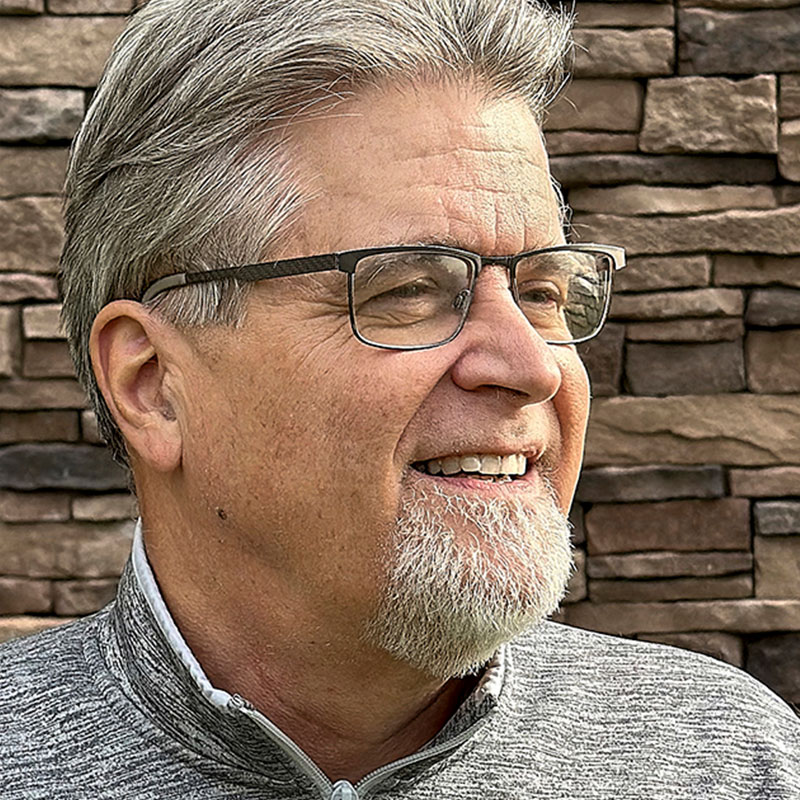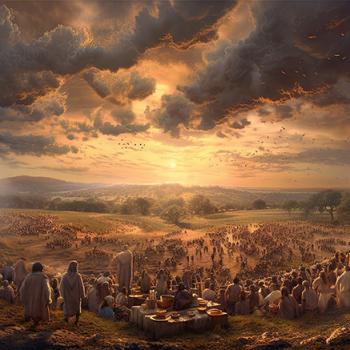
The Anatomy of a Faith Shift
I was a naïve fifteen-year-old yearning for meaning in life and spurred by my “born again” mom and youth leaders at our Baptist church. The Jesus Movement of the 1970s was having an impact on wider society. At a Jesus festival called Explo ‘72 in Dallas, I had my first encounter with hippie Jesus people, Christian rock music, and Billy Graham. Later, at 17, I personally met and heard the testimony of contemporary Christian music pioneers Phil Keaggy and Paul Clark. Mom had arranged for them to stay at our house one night. These influences set a hook inside me with a simplistic message: the answer to my personal angst and life’s problems is Jesus. The only way to find true peace, forgiveness, and meaning in life is to accept Jesus as one’s Lord and Savior and join a sufficiently evangelical church. And, almost as an afterthought, without a personal relationship with Jesus, one is headed to humanity’s default destination—everlasting hell. The voices of this double-faced message messed with my head but slowly started reeling me in.
What Landed Me in the Evangelical Boat
Recently, after seeing the trailer for the evangelical propaganda movie, The Jesus Revolution, and watching the more-honest documentary, Frisbee: The Life and Death of a Hippie Preacher, I was reminded how sincere my own evangelical faith began. In college in 1979, after having a nervous breakdown, I finally “accepted Jesus” (initially without evangelical theology) and experienced a profound peace. Members of my university’s Intervarsity Christian Fellowship welcomed me with open arms. Through another Jesus festival, involvement in a variety of churches, and exposure to Christian music and teaching, I became a dedicated follower. I relished this new spiritual community. It seemed like evangelical Christianity was the ultimate reality. Even Bob Dylan converted that same year through the Vineyard movement (which Lonnie Frisbee of the above cited documentary helped ignite). Dylan began sharing Jesus and “the gospel” through his next three albums. I was aware of God’s love, thought I had found the truth, and had a few mind-blowing experiences with the Spirit. For example, once later on, I got a spiritual laughing spell in what was called The Toronto Blessing.
Diving Off the Deep End of Evangelical Theology
Influenced through the voices of evangelical teachers and heroes like musician/writer Keith Green, I basically ran to the end of the evangelical pool and dove off the deep end. I became a missionary in Africa for seven years doing a combination of aid work, evangelism, and church planting. I focused on “unreached peoples” and decided to focus on the hardest to reach: Muslims. Although my mission agencies practiced “contextualization” (incorporating Islamic culture so as not to impose Western religious systems on converts), we still had an “us vs. them” mentality. We divided the world into the saved and the lost. By going to the “lost,” us missionaries believed we were hastening the Return of Christ. Since we believed we were in “the last days,” many of my evangelical friends considered his “coming” to be imminent.
I also became a pro-life activist with Operation Rescue, an organization that blockaded abortion clinics. Once I spent three days in the L.A. County Jail after participating in a sit in with 700 others. In the 1980s and 90s, when not on the mission field, I got involved with charismatic movements like People of Destiny (now Sovereign Grace Churches) and the Vineyard. Yet I was blind to what simmered under the surface: evangelicalism’s societal and religious bigotry. We alone had the answers. And God was always on our side.
Hoisting Red Flags Due to Spiritual Cognitive Dissonance and Deconstruction
Over the years red flags started to surface brought on by a thing called cognitive dissonance—holding two or more conflicting thoughts in your mind at once. It can drive you batty.
When I read the gospels, I saw Jesus as a revolutionary spiritual genius on the side of the poor and oppressed. This is why I pursued community development projects that empowered the impoverished in my missionary work. I recognized a non-violent love ethic that loved neighbors and enemies alike. I caught glimpses of universal love in Jesus’ good news of the kingdom. Yet eventually, contrary to what we claimed, I had to admit our evangelical God only offered conditional love.
My secular, gay, and newly found Muslim friends were still on their way to eternal punishment unless they too “accepted Christ” and embraced evangelical theology. The good news that you can find peace and truth was always counter balanced with a message of fear. If you don’t become a true believer, or perhaps if you later fall away, the threat of judgment and eternal damnation loomed large. Our country also faced judgment if it let its supposed Christian roots dry up. The evangelical God was transactional. Without us pursuing worship, Bible study, tithing, prayer, fasting, evangelism, and conformity to religious codes of conduct, God wasn’t really actively blessing people. Without us, he was not saving the “lost.” We always had to do something more or go somewhere else to get this God to act.
Sin-Doctrine Management and Spiritual Abuse
They said the Bible is inerrant—but I continued to find some glaring contradictions. For God so loved the world, he sent Jesus. But God’s wrath against humanity’s sin meant Jesus had to be tortured and murdered on the cross before he would even consider forgiving us. The violent substitutionary interpretation of the atonement was the only right one. Believing the right “biblical” doctrines was mandatory to remain saved, but my positive spiritual experiences had nothing to do with doctrine. Jesus turned water into wine (800 bottles if you do the math), but even moderate drinking was taboo. I discovered the evangelical church had more to do with legalistic sin-doctrine-management and religious duty than actually living a life of love. And if you questioned any of this too much or church leadership, you became a victim of spiritual abuse, which I personally saw and painfully experienced.
Unraveling Before Rebuilding a Healthy Faith
A combination of cognitive and emotional dissonance and spiritual abuse led to my clinical depression in the mid-late 1990s and a crisis of faith in the early 2000s. Most things I thought were true or real suddenly crumbled below me. My world fell apart and I lost the ability to stand on solid ground. I became angry and mishandled some relationships. But something beautiful arose when the dust settled: My evangelical deconstruction and gradual rebuilding of a faith based on a sound study of history. I discovered honest questioning and unbiased fact checking are the key. I discovered the actual Jesus Movement of the first century looks very little like the modern evangelical movement, including their view of the Bible. I discovered universal love (love that ultimately restores all of humanity) and Jesus’ peaceable path are genuine and grounded in authentic textual and historical scholarship. I left evangelicalism for something more transformational, verifiable, and aligned with historical facts. Early on, I occasionally looked back. It’s a struggle to overcome religious programming. Thankfully, I found therapeutic tools and a supportive community to get me through. Moreover, I’m at your service to help you do the same.
******
Michael Camp tends the Spiritual Brewpub, which helps disillusioned or post-evangelicals (or “nones”) uncover historical facts and insights that help them deconstruct, rethink, and rebuild a more authentic faith or philosophy of life. He is the author of Breaking Bad Faith, Craft Brewed Jesus, and Confessions of a Bible Thumper. To get specific help deconstructing conservative Christianity and rebuilding healthy faith, see Michael’s Religious Deconstruction Workshop. To hear fascinating interviews with leading voices in the deconstruction community, listen to the Spiritual Brewpub Podcast.














